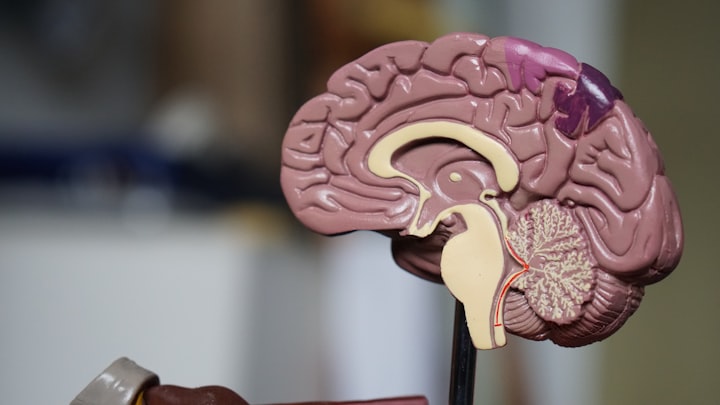Discovering The Brain
Learning, recalling and thinking

Brain health refers to the state of optimal functioning of the brain, including cognitive, emotional, and social well-being. A healthy brain is essential for overall well-being and quality of life. Some key factors that contribute to brain health include:
Physical activity: Regular exercise and physical activity can help maintain brain health and reduce the risk of cognitive decline.
Mental stimulation: Challenging the brain with new and engaging activities, such as learning a new language, playing an instrument, or solving puzzles, can help improve cognitive function and prevent cognitive decline.
Healthy diet: A diet rich in fruits, vegetables, whole grains, and lean protein can provide the nutrients and antioxidants needed for optimal brain function.
Quality sleep: Getting enough sleep is crucial for brain health, as it allows the brain to repair and recharge.
Social connection: Maintaining social connections and engaging in meaningful relationships can help prevent cognitive decline and improve emotional well-being.
Stress management: Chronic stress can negatively impact brain health, so finding effective ways to manage stress, such as mindfulness meditation or yoga, is essential.
Avoidance of harmful substances: Avoiding smoking and excessive alcohol consumption can help maintain brain health and reduce the risk of cognitive decline.
Keep your brain healthy with this supplement
There are many ways to improve brain memory, including:
Regular exercise: Exercise increases blood flow to the brain, which can improve cognitive function and memory.
Getting enough sleep: Adequate sleep is crucial for memory consolidation and retention.
Practicing mindfulness: Mindfulness meditation and other relaxation techniques can help reduce stress and improve memory.
Eating a healthy diet: A diet rich in fruits, vegetables, whole grains, and lean protein can provide the nutrients and antioxidants needed for optimal brain function.
Learning new things: Challenging your brain with new activities, such as learning a new language, playing an instrument, or trying a new hobby, can improve memory and cognitive function.
Using mnemonic devices: Mnemonic devices, such as acronyms or rhymes, can help you remember information more effectively.
Breaking information down: Breaking information down into smaller chunks and organizing it in a meaningful way can make it easier to remember.
Practicing repetition: Repeating information multiple times can help you remember it more effectively.
Associating information with visual cues: Associating information with visual cues, such as images or diagrams, can help you remember it more effectively.
Here are some tips to help you easily memorize something:
Repetition: Repetition is a powerful tool for memorization. Repeating information over and over again can help reinforce it in your memory.
Chunking: Breaking information down into smaller, more manageable chunks can make it easier to remember. Try to group related information together and focus on memorizing one chunk at a time.
Visual cues: Associating information with visual cues, such as images or diagrams, can help you remember it more effectively. Try to create a mental picture or draw a diagram to help you remember the information.
Mnemonic devices: Mnemonic devices are memory aids that help you remember information more effectively. Some common mnemonic devices include acronyms, rhymes, and acrostics.
Association: Associating new information with something you already know can make it easier to remember. Try to connect the new information to a familiar concept or idea.
Active learning: Engaging with the material actively, such as by writing notes, asking questions, or discussing it with others, can help you remember it better than passive reading or listening.
Practice retrieval: Retrieving information from memory is an effective way to strengthen the memory. Try to recall the information from memory without looking at your notes, and then check to see if you got it right.
There are several key nutrients that are important for brain health and can help improve brain memory and remembering power. Here are some of them:
Omega-3 fatty acids: Omega-3s are essential fatty acids that are important for brain function and development. They can be found in fatty fish like salmon, tuna, and sardines, as well as in walnuts, flaxseed, and chia seeds.
B vitamins: B vitamins, particularly vitamin B6, vitamin B9 (folate), and vitamin B12, are important for brain function and cognitive health. They can be found in foods like leafy greens, beans, whole grains, eggs, and lean meats.
Antioxidants: Antioxidants are important for protecting the brain against oxidative stress, which can contribute to cognitive decline. Foods that are high in antioxidants include berries, dark chocolate, and green tea.
Choline: Choline is a nutrient that is important for brain development and memory function. It can be found in foods like eggs, liver, and peanuts.
Magnesium: Magnesium is an important mineral for brain health and can help improve memory and cognitive function. It can be found in foods like leafy greens, nuts, and whole grains.
Zinc: Zinc is a mineral that is important for brain function and memory. It can be found in foods like oysters, beef, and pumpkin seeds.





Comments
Fairul Nizam is not accepting comments at the moment
Want to show your support? Send them a one-off tip.